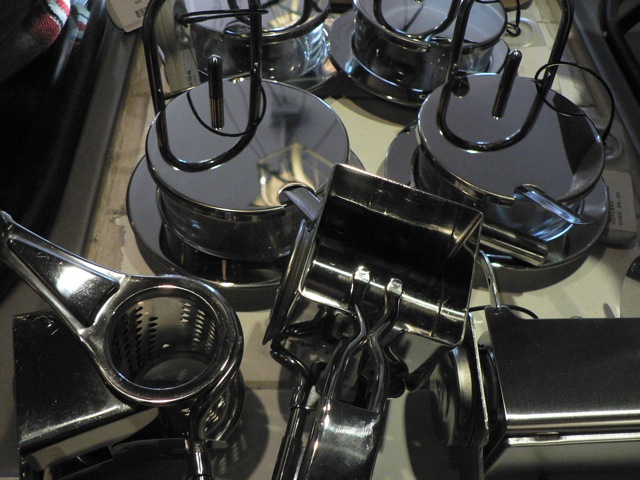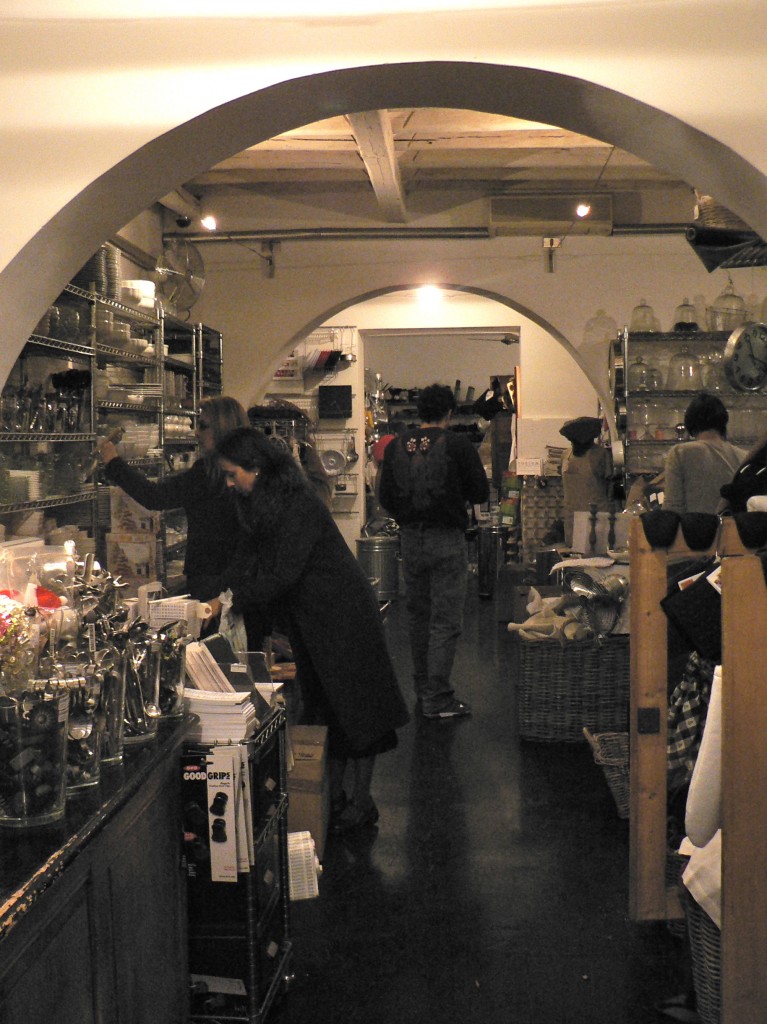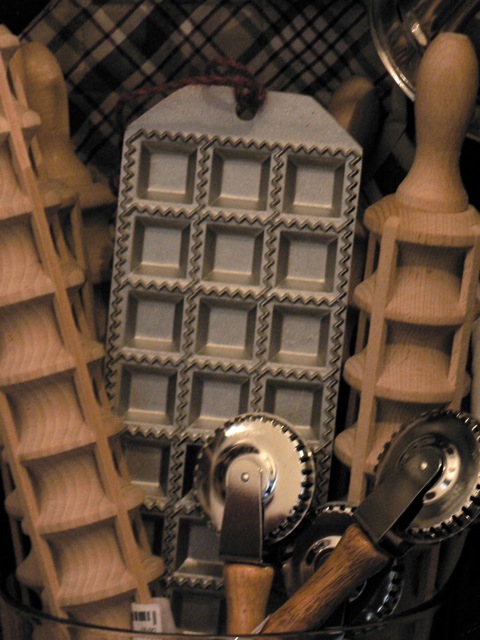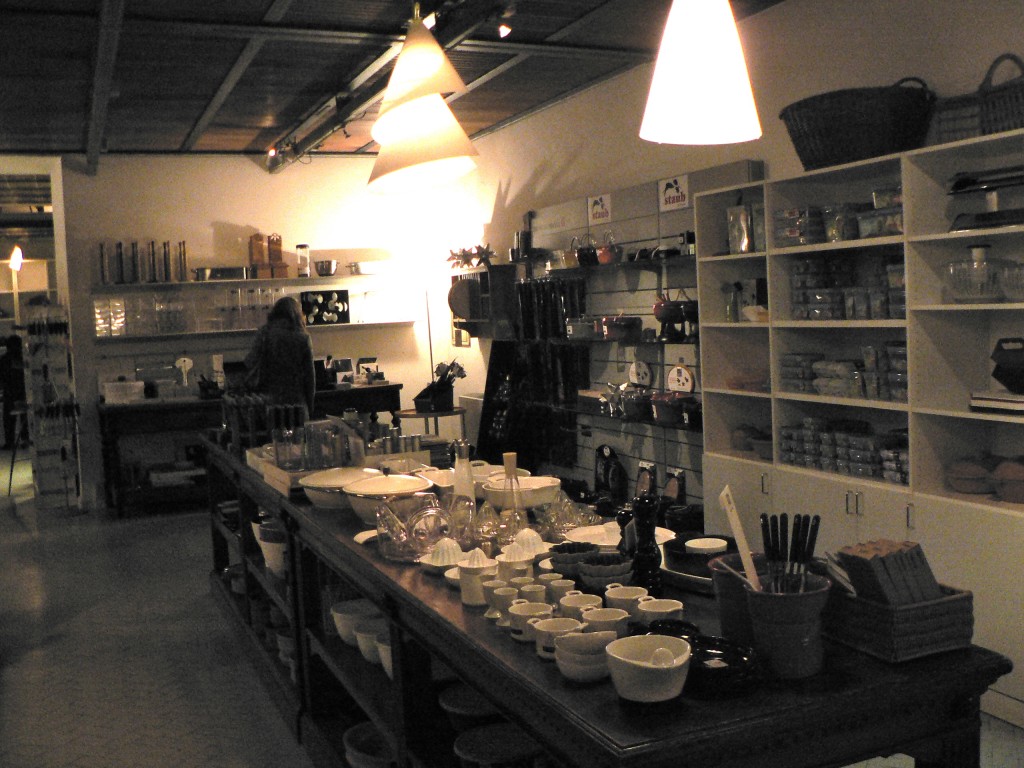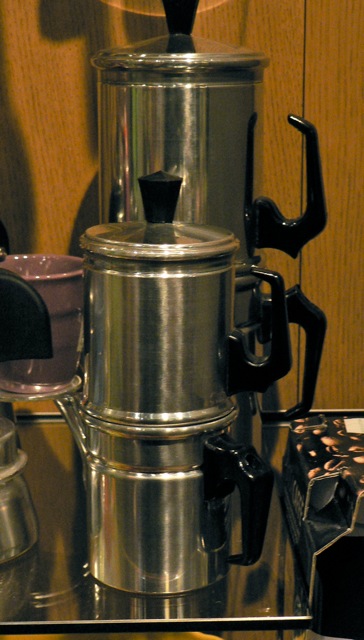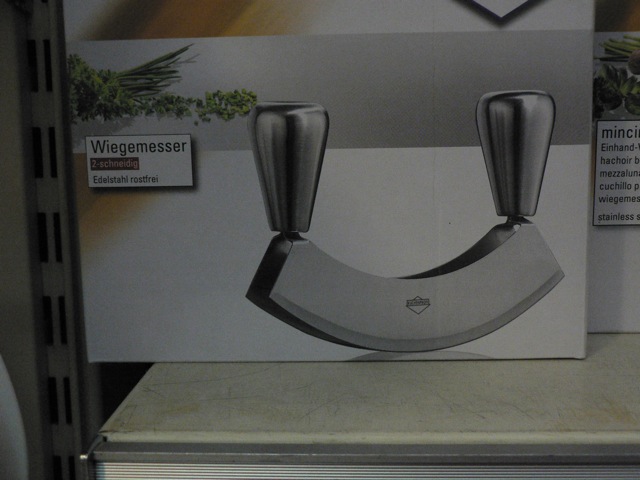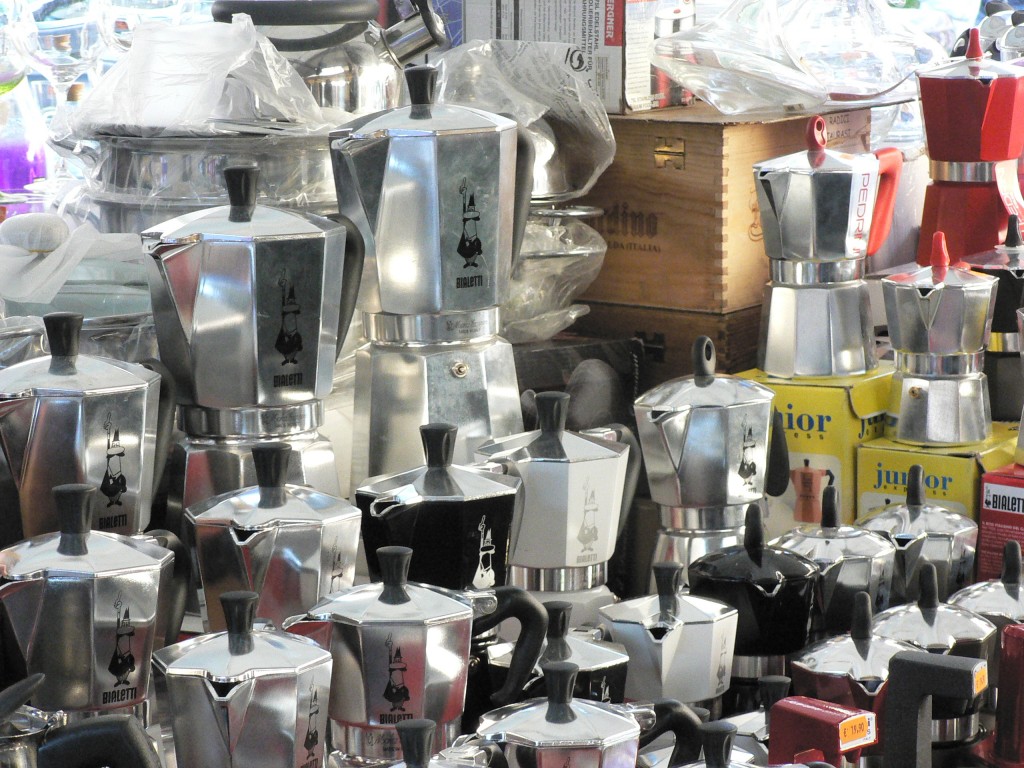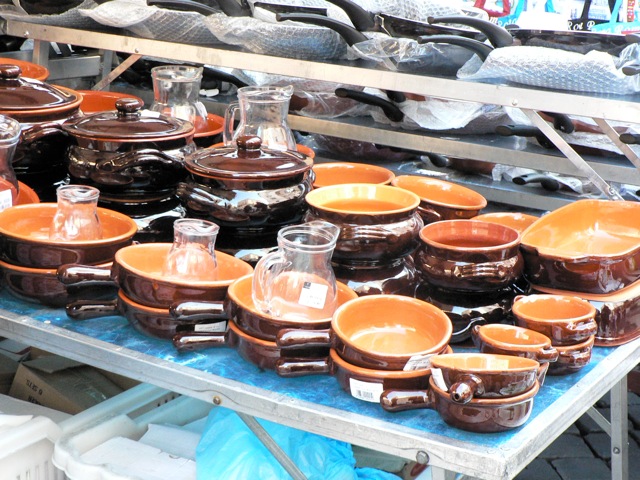Shopping for Kitchen Items in Rome
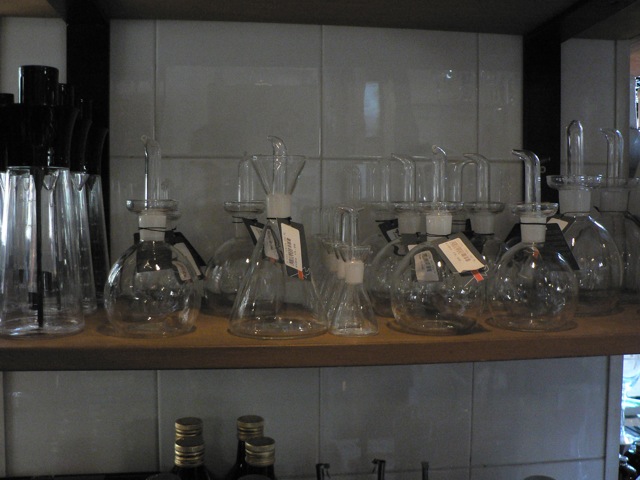
This post came to be because so many of our travelers ask us for advice regarding special packable gifts that they can bring home with them. I have many suggestions, and one of the most popular is kitchen items. Not however those you will find at Williams Sonoma or Macy’s, but items that are Italian-made and less usual and that will make your friends very happy (and might also find a fine home in your own kitchen.)
The five Rome stores we recommend are in the old city center, and everyone of them can be accessed on foot from any of the hotels where we will book for you. In Venice and Florence we have the equivalent sources, so please just ask us if you are visiting those cities. And this weekend, when we will be in Naples, we we can tell you where to go there — a city with some of Italy’s greatest cooks — too.
This post also came to be because I was lacking something in my own Rome kitchen, and needed to find it. What was it ? A pourer for my balsamic vinegar bottle. This is a very thin glass or steel spout inserted within a stout cork, and doses the balsamic in drops. My balsamic comes from a vineyard restaurant that many Insider’s travelers have visited, run by the mythical Italo, whose family’s Modenese elixir/balsamico is a salad essential.
A doser with a tiny diameter restricts the serving quantity to just a drop.
You could use the same item, with a spout with wider diameter, for olive oil too, applying it directly to your olive oil bottle .
The 119, a tiny public bus our Rome travelers often love to take, and which negotiates streets too narrow for other public transport, conveyed me to my first kitchen store, Gusto Emporio. This is by far the most hip of the Roman kitchen sources I patronize. I was fairly sure I would find the doser here.
Endearing already in being fronted by a lively restaurant by the same name, Gusto is a tiny, fashionable store selling an eclectic collection including chic Italian cookware (saucepans, easy to pack, by Ballarini and Alessi), hand cranked Parmesan graters of all description, Parmesan serving bowls, salad implements, oil cruets, linen table napkins and very pretty place mats. All made in Italy.
Every item sold here is of excellent design both aesthetically and functionally.
And sure enough, just what I wanted, among the salad accessories : my vinegar spout. Prices are moderate to high, with some exceptions (for example my vinegar spout, at 2.50 Euro, or about $3.25.) Gusto’s well paunched owner is solicitous, and at lunch time is outside, drinking and eating, but pops immediately into the store whenever he may be helpful. Wine and cooking books are very good here, with many in English. And the gift wrapping is lovely.
A ten minute walk from Gusto is a second favorite, C.u.c.i.n.a, a more serious cooking supply store, with less expert staff but the largest display of excellent cook’s tools. Chefs come here, and so do serious home cooks, plus people like me who love to be in the kitchen. Stacked up to the ceiling is the stove ware, much of which fits easily into a suitcase, including heavy weight aluminum pans by Pardini, and stainless steel Alessi and Lagostina pans.
There are Italian-made aluminum molds for making ciambella, baba’ and zuccotto. By the door is a rack of tools for making fresh pasta including a variety of hand cranked machines and molds of various shapes for for ravioli.
And two cherished items, real panettone and pandoro pans, both of which — the authentic items — are near impossible to locate outside of Italy because only here are they produced with the indispensable very high sides.
My beautiful neighbor neighbor Angela, till she retired last year, set off every morning, at a fast clip, down our hill to the store where she worked, a kitchen design store called Spazio Sette.
Everyone who works at Spazio Sette reminds me of Angela, 60-something, in cashmeres and double strands of pearls, solicitous and elegant, and eager to be helpful. Here Alessi flatware, Ginori and small marble items (wonderful mortar and pestles) would be perfect gifts. Not to miss are the top floor’s 17th century ceiling frescoes.
During college, I ran a fresh pasta business and all of my equipment came from Limentani. Twenty-five years later, Limentani (a store close to 200 years old) is little changed — a few steep and dangerous steps to get into their below-street level shop, the same damp and catacomb-like atmosphere. This is a store where you can roam for hours, where the nearly all male staff is kind but scarce (and unlike our other stores, does not necessarily speak English.) Unless you are a kitchen store addict, Limentani is best suited to a single large purpose : a wedding present (this is the traditional Roman place to buy household-themed wedding presents) a marble rolling pin, a set of Ginori china. Conveniently located close to Rome’s outstanding Jewish Museum, in the Jewish ghetto.
My mother grew up in Rome, and part of her beginning-of-summer children’s tradition was visiting Rome’s then best kitchen store, Sorelle Adamoli, now called House and Kitchen, to obtain a rubber lifesaver for the beach.
 Sorelle Adamoli (now House and Kitchen) duck, my mother and siblings, 1931, at Fiumetto in Tuscany
Sorelle Adamoli (now House and Kitchen) duck, my mother and siblings, 1931, at Fiumetto in Tuscany
While House and Kitchen still sells, starting in June, a fine collection of seaside and picnic accessories, they no longer have lifesavers. But they do have the best priced espresso machines (all makes), oodles of Alessi gadgets and the least expensive Alessi flatware. The Neapolitan flip-over espresso pot is available here.
And this is the only store that carries one of my favorite presents, the double-bladed half moon mincing knife called the mezzaluna a doppia lama which I cannot effectively cook without.
Keep in mind that all of these stores run twice-annual sales where much of the stock is nicely discounted (let us know if you would like dates.)
All of Rome’s good markets have at least one housewares stand. Some have several. Prices here are often lower than stores, but look carefully to ensure that what you are buying is Italian and not Chinese made.
In the last month, at the market I’ve found brown earthenware Tuscan bean pots, Bialetti espresso pots, replacement gaskets for espresso pots, stockware Ginori table accessories, linen aprons and lovely kitchen towels. Note that markets are usually Monday to Saturday only, and run generally in mornings only.
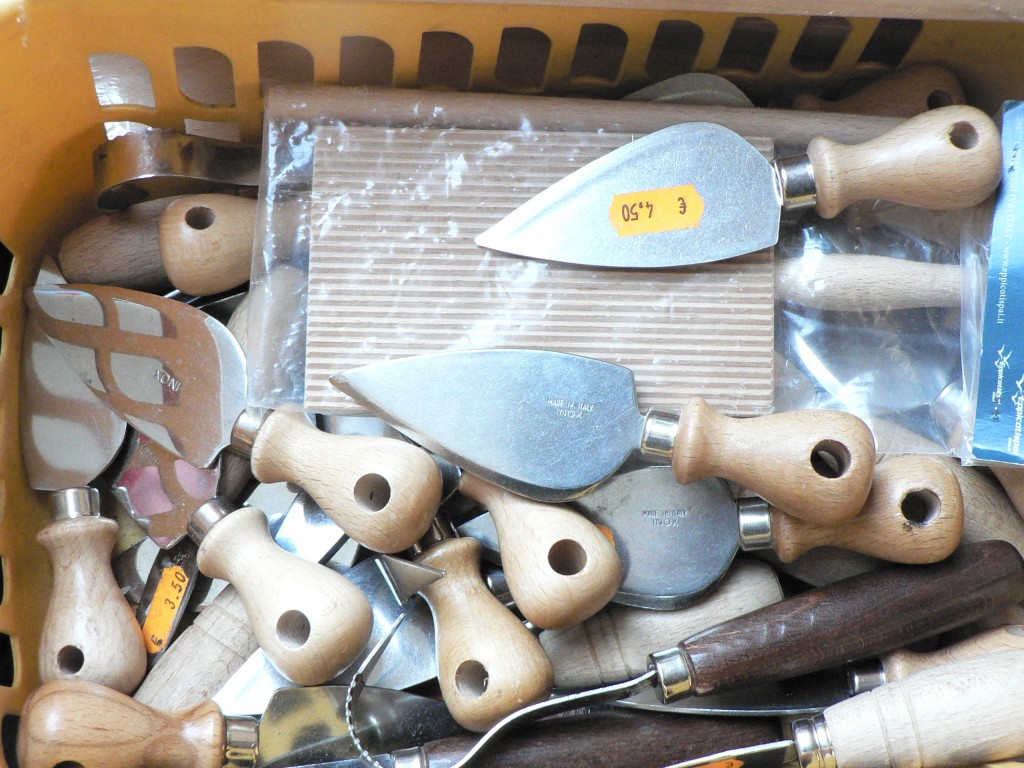
A neighborhood casalinghi (or housewares) store will have on display handfuls of attractive kitchen items that are small and each cost under 10 Euro ($14) each — the ultimate pizza tools, hearty sheers for cutting a roast chicken, a kitchen timer in the shape of a ripe purple fig, a stainless steeel funnel for decanting olive oil from a can into glass bottles (with a strainer to catch the sediment.) All easy to pack and lovely souvenirs of charm and utility from of a recent Italian trip.

Meet Marjorie
Insider’s Italy is an experienced family business that draws on my family’s four generations of life in Italy. I personally plan your travels. It is my great joy to share with you my family’s hundred-year-plus archive of Italian delights, discoveries and special friends.

